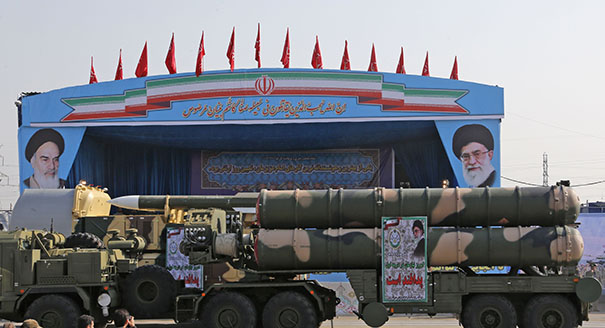Natasha Schmidt | English editor at IranWire
If Iran withdraws from the Joint Comprehensive Plan of Action, it is unlikely to resort to war. Because of the profound lack of political unity in Iran today, calls for war are likely to be little more than talk, despite the probability that Supreme Leader Ayatollah Ali Khamenei, Revolutionary Guards commanders, and sections of the media will make grand pronouncements about the evils of the West and the Great Satan (the United States). After all, these ruptures help perpetuate the endemic corruption that benefits so many in the political establishment.
President Donald Trump would regard Iran’s withdrawal as proof that the country cannot be trusted, but would probably not regard it as a direct provocation. In the current climate, many Iranian officials, even Revolutionary Guards commanders, would share the belief of Iranian citizens that repairing the economy should take priority over engaging in a costly war—a point that even Khamenei might find difficult to challenge.
Adnan Tabatabai | CEO of CARPO, the Center for Applied Research in Partnership with the Orient
While we have to brace for further escalation in the region, there will neither be a U.S. invasion à la Iraq or Afghanistan, nor will the United States or Israel carry out airstrikes against Iran. Instead, Iranian and Iran-linked forces and U.S. troops will probably confront each other in places such as Syria and Iraq. The waters of the Persian Gulf will potentially be theaters of (albeit minor) incidents between Iranian and American vessels. With the anti-Iran zeal in Washington and among U.S. allies in the region, Iran will feel increasingly threatened and, consequently, see a need to prop up its deterrence capabilities in the region—in other words its missile program and armed allies. Tehran may follow the logic of increasingly threatening U.S. troops and allies in order to push Washington to tame its policy decisions. The bad news is that all of the scenarios outlined above are likely, even if the Joint Comprehensive Plan of Action survives.
Hussein Ibish | Senior resident scholar at the Arab Gulf States Institute in Washington, D.C.
Even if the nuclear deal, or Joint Comprehensive Plan of Action, falls apart between Iran and the international community following the U.S. withdrawal from the agreement, war is unlikely. A full-fledged military confrontation is not in the interests of either the United States or Iran, so both parties will probably attempt to avoid one even if provoked. For now, both Washington and Tehran believe they are operating from positions of relative strength. However, they will eventually discover the limitations of what can be accomplished under current circumstances. Regime change in Tehran is unlikely, wouldn’t be caused primarily by Washington’s policies, and may not result in a friendlier Iran. Tehran, however, will not be able to isolate the United States and will suffer from the new sanctions that Washington is imposing as well as other pressure. When the dust settles, the U.S. and Iran will probably seek a new understanding, perhaps beginning, as in the past, through an Iranian dialogue with European countries.
James Spencer | Independent defense and security analyst, Middle East and North Africa
A nuclear weapons program—and even a nuclear power program—is an expensive undertaking, and in straitened financial times Iran may not return immediately to the nuclear program. The International Atomic Energy Agency is present in Iran, monitoring the nuclear program closely and making regular certifications of Iran’s compliance with the Joint Comprehensive Plan of Action. Nevertheless, as we saw when the United States accused Iraq, without evidence, of producing weapons of mass destruction, those with the intention of finding fault do not need truth in order to engage in aggressive war.
However, there were legal advantages for Operation Iraqi Freedom that do not exist with Iran, in particular the United Nations Security Council resolutions dating from 1990 and 1991 which, through creative lawyering, were claimed to be sufficient grounds to permit a continuation of the 1991 war when further resolutions were unachievable. Those do not exist against Iran. For the United States to attack Iran, either directly or following its client Israel, would be an act of aggression, which has been defined since 2010 by the states parties to the Rome Statute of the International Criminal Court. Far more likely is an escalation of the current low-level campaign against Iran, possibly in the hope of creating a case for war, which could then be portrayed as a “defensive” action.








